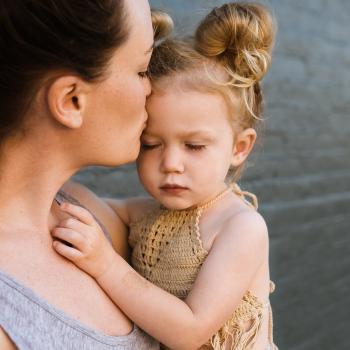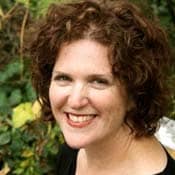This summer, our church is doing a sermon series on questions, doubts, and fears. In May, the congregation submitted questions they had always wanted to ask. Sorting through them, the three pastors have addressed the most popular questions each week. Each topic could be a full semester course in seminary: "What about heaven and hell?" "How do I reconcile science and faith?" "Why do bad things happen to good people?" "Who is Jesus?" "What about other religions?"
The congregation is proving to be incredibly resilient, flexible, and willing to live with difference. In a community that holds vastly different views and perspectives on many topics, this is no small feat. After each service, I hear many positive comments about how thankful people are to have their questions addressed directly and honestly. Later in the week, in private conversation, I hear voices of disagreement. Either way, I appreciate the fact that the sermons are spurring conversation and people are engaging in their own answers and questions.
We preach with a little bit of trepidation on these topics that have been dividing lines for centuries. As much as we try to do more framing of the questions than answering, it seems that some sort of answer, some way of saying, "This is how I see it," is needed to honor the questions. This makes us vulnerable when we share what may be a controversial position and it makes us vulnerable when we talk about how the question shows up in our own stories.
It's not just the pastors' stories that are involved; most of the submitted questions are rooted in the struggle people have with popular American religious ideas and more personally, with the faith they were given as a child. Behind each question, there are memories, relationships, and emotions, which is why these questions remain alive even after millions of words have been written and spoken on them. The response to my preaching this summer has been much less about the theological idea that I presented and more what kind of church they grew up in or another's frustration with a friend's extremist emails or sadness over the inability to talk to a daughter about faith.
I have struggled with how much of my own story to bring into my sermons. Each sermon could include a lengthy discussion of how my story wraps around my response. When I spoke on suffering, I didn't talk much about my own suffering. I didn't talk about the pain of losing many friends to tragic inexplicable deaths or the pain of having my faith questioned by friends and family when I chose a different path within Christianity or the constant exposure to pain as a hospital chaplain last summer. And for at least one person, that invalidated my message because looking at me, they couldn't imagine that I actually knew what suffering was. And for several others, the sermon was enough to open the door and share their own suffering without knowing much of mine.
In other sermons, I have talked directly from my experience. I talked about what it was like to go from an education based around a literal six-day creationism to being open to a wider possibility of how God interacts with the world. I have spoken about the fear that I had asking questions about Jesus and the Bible because I was taught you weren't supposed to mess with those questions. On these days, some said my story was getting in the way and making me too critical. At the same time, others found resonance in their own struggle to find a faith of their own.
I can't say whether I've talked about my own story too much or too little, only that when I do talk about my story, it has power. It has the power to alienate and it has the power to draw in. It opens some people to go deeper into their own story and it closes down others who can't hear beyond it. It increases intimacy with the congregation and it can also create a co-dependency. Wisely disclosing our personal stories as pastors is a tricky thing and requires a lot of sensitive discernment, acquired only through trial and error, I'm afraid.
Some pastors seem to risk little of their own story. It gives a certain level of protection from the congregation and ensures that one's own story doesn't interfere with pastoral counseling. A prudent choice. However, I wonder as time goes on, if this kind of pastoral relationship will be a casualty of our shifting cultural relationship with religion. Faith that doesn't land in the midst of one's own life is going to be unacceptable. In the midst of wire transfers and electronic communication, the opportunity to gather together and hear stories may be one of the gifts faith communities can bring. In a world where Google can answer most questions, people don't need the pastor to hold all the answers, but they do need to find a way to live with the answers they find. This movement toward story is a move forward and also a move back—back to the stories that were told in oral tradition, back to the gift of true community where you are known and seen and heard.
If we really believe the Word of God is living, active, and sharper than any two-edged sword, then we will talk about our stories because that Word is still active today, still speaking into hearts and into the life of this world. And for the most part, it doesn't show up in clean theological constructs—it shows up in stories.
8/10/2011 4:00:00 AM





